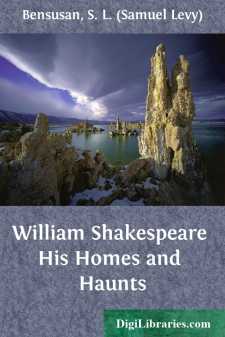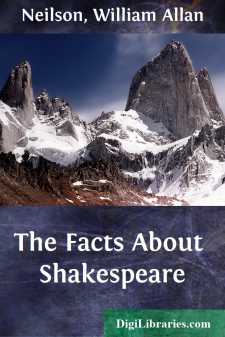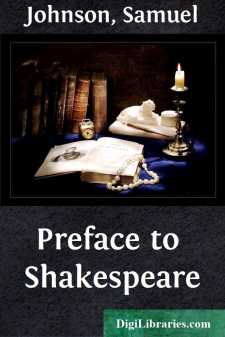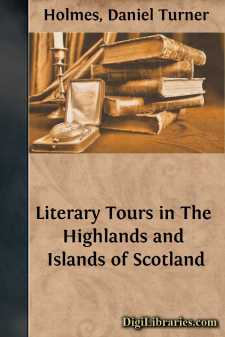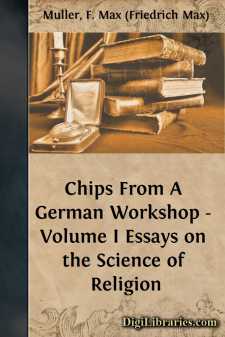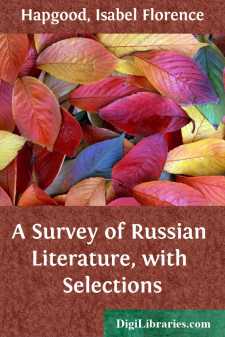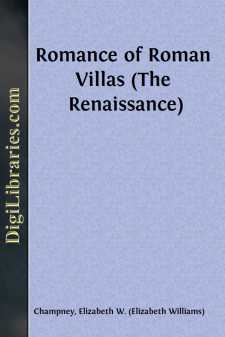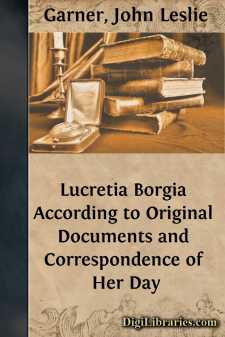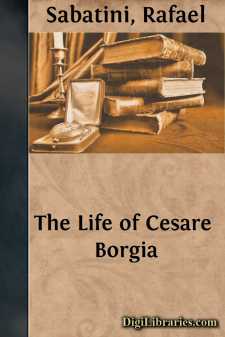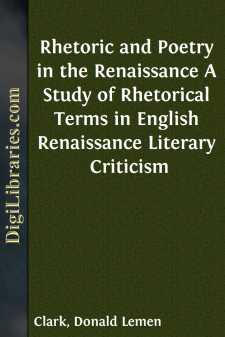Literary Criticism
- American 18
- Ancient and Classical 3
- Asian 1
- Australian & Oceanian 1
- Books & Reading 8
- Caribbean & Latin American 2
- Drama 2
- English, Irish, Scottish, Welsh 49
- European 7
- General 37
- Horror 1
- Humor 2
- Jewish 2
- Medieval 2
- Middle Eastern 3
- Poetry 7
- Renaissance 6
- Russian & Former Soviet Union 1
- Shakespeare 27
Literary Criticism Books
Sort by:
PREFACE In telling the story of Shakespeare's life and work within strict limits of space, an attempt has been made to keep closely to essential matters. There is no period of the poet's life, there is no branch of his marvellous work, that has not been the subject of long and learned volumes, no single play that has not been discussed at greater length than serves here to cover the chief...
more...
Shakespeare's England and London Shakespeare lived in a period of change. In religion, politics, literature, and commerce, in the habits of daily living, in the world of ideas, his lifetime witnessed continual change and movement. When Elizabeth came to the throne, six years before he was born, England was still largely Catholic, as it had been for nine centuries; when she died England was...
more...
by:
Samuel Johnson
PREFACE TO SHAKESPEARE That praises are without reason lavished on the dead, and that the honours due only to excellence are paid to antiquity, is a complaint likely to be always continued by those, who, being able to add nothing to truth, hope for eminence from the heresies of paradox; or those, who, being forced by disappointment upon consolatory expedients, are willing to hope from posterity what...
more...
CHAPTER I.INTRODUCTORY. Village libraries—Difficulties of travel—Literary Societies in the Highlands—Gaelic books—Happiness and geniality of natives—Oban to Gairloch—Winter sailing—A crofting village—Horrors of the Minch—Notes on Lewis—Highland doctors—Hotels and anglers—Recent books—Military—Moray Firth—Among the miners—Handloom weaving—Professor Blackie and the...
more...
PREFACE. ore than twenty years have passed since my revered friend Bunsen called me one day into his library at Carlton House Terrace, and announced to me with beaming eyes that the publication of the Rig-veda was secure. He had spent many days in seeing the Directors of the East-India Company, and explaining to them the importance of this work, and the necessity of having it published in England. At...
more...
THE ANCIENT PERIOD, FROM THE EARLIEST TIMES TO THE INTRODUCTION OF CHRISTIANITY IN 988. Whether Russia had any literature, or even a distinctive alphabet, previous to the end of the tenth century, is not known. In the year 988, VladÃmir, Grand Prince of KÃeff, accepted Christianity for himself and his nation, from Byzantium, and baptized Russia wholesale. Hence his characteristic title in...
more...
INTRODUCTION In came the cardinal, grave and coldly wise,His scarlet gown and robes of cobweb laceTrailed on the marble floor; with convex glassHe bent o'er Guido's shoulder.Walter Thornbury. STILL unrivalled, after the lapse of four centuries the villas of the great cardinals of the Renaissance retain their supremacy over their Italian sisters, not, as once, by reason of their prodigal...
more...
INTRODUCTION Lucretia Borgia is the most unfortunate woman in modern history. Is this because she was guilty of the most hideous crimes, or is it simply because she has been unjustly condemned by the world to bear its curse? The question has never been answered. Mankind is ever ready to discover the personification of human virtues and human vices in certain typical characters found in history and...
more...
by:
Rafael Sabatini
PREFACE This is no Chronicle of Saints. Nor yet is it a History of Devils. It is a record of certain very human, strenuous men in a very human, strenuous age; a lustful, flamboyant age; an age red with blood and pale with passion at white-heat; an age of steel and velvet, of vivid colour, dazzling light and impenetrable shadow; an age of swift movement, pitiless violence and high endeavour, of sharp...
more...
Chapter IIntroductory By definition the renaissance was primarily a literary and scholarly movement derived from the literature of classical antiquity. Thus the historical, philosophical, pedagogical, and dramatic literatures of the renaissance cannot be accurately understood except in the light of the Greek and Roman authors whose writings inspired them. To this general rule the literary criticism of...
more...


